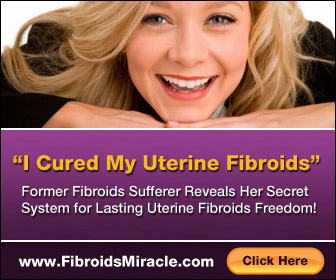How Uterine Fibroids Affect Your Reproductive Health
The onset of menstruation signals the start of a woman’s reproductive period. Along with the prospect of growing and carrying a tiny being in her womb, a woman faces a number of reproductive health issues that could affect the way she lives her life. The risk of developing uterine fibroids is one of the issues that women of child-bearing age should look out for. Getting adequate information about fibroids and knowing how they can affect your reproductive health is essential to prevent them or to manage them if you already have them.
The Age Factor
Menarche or the onset of menstruation happens sometime during the early teenage years. At this point, healthy women go through the normal menstrual cycle which includes periods of fertility and bleeding. While women become candidates for fibroids when they start menstruating, fibroids are usually diagnosed in women in mid-life or nearing menopause.
Women who have family members who have had fibroids will most likely have these tumors too. Those who have polycystic ovary syndrome and those who have not conceived face greater risks too.
The Menstrual Cycle
In healthy women, there should be regularity in their menstrual cycles. Irregular periods should be a cause for concern and should warrant a visit to the doctor. The presence of uterine fibroids is one of the causes of abnormal periods – either the absence of bleeding or heavy bleeding.
For women who are going through perimenopause and menopause, their cycles could be irregular. This could be attributed to the hormonal changes and erratic ovulation that occurs during this stage of a woman’s life. In a lot of cases, bleeding becomes heavier and lasts longer. The same hormonal changes can cause or aggravate tumors in the uterus and cause the same symptoms.
The usual culprits of complications in your menstrual periods are intramural and submucosal fibroids. These fibroids cause changes in how the uterine muscles contract such that the uterus can no longer control the bleeding.
Heavy and painful menstruation may also be caused by intramural fibroids that press into the uterine walls and compress veins. This snowballs to several more conditions that complicate the menstrual cycle such as weakness and fatigue, abdominal cramps, and anemia.
Pregnancy and Fertility
The presence of fibroids alone does not automatically lead to pregnancy and fertility issues. It is the location and size of these fibroids that could pose problems with a woman’s ability to get pregnant. Reports show that a big percentage of women with fibroids will not likely have fertility issues. On the other hand, about a tenth those who are diagnosed as infertile were found to have fibroids too.
Large fibroids in the uterine cavity and those that block the openings of the fallopian tubes usually make it difficult for women to get pregnant. These growths could hinder egg implantation or hamper sperm entry into the uterus. The development of an embryo will also be compromised when fibroids affect the uterine lining and the blood flow into the uterus.
Fibroids and Infertility
If you are diagnosed with fibroids and are afraid that you could face infertility, the best way to get treated is to talk to your doctor. Do not worry prematurely. Fibroids do not always result in infertility. In some cases, it is the treatment that causes the infertility as in the case of carelessly scraping or ‘burning’ the fibroids from the uterine walls. Tell your doctor that you intend to have children in the future so that he can recommend those procedures and drugs for uterine fibroids that do not affect your infertility.


